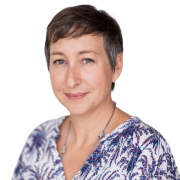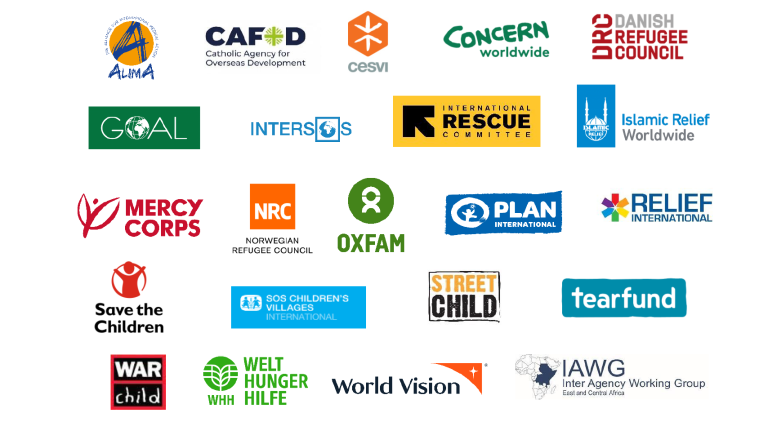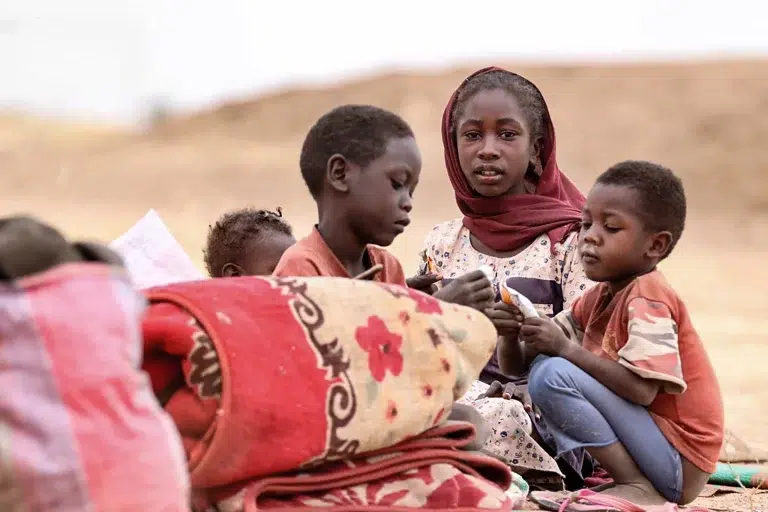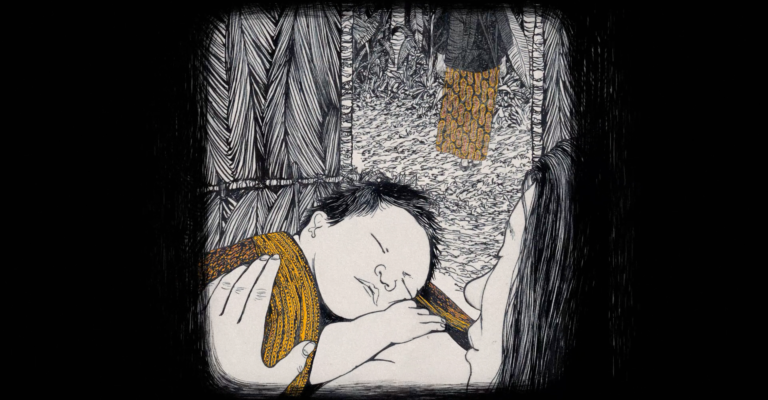Nigeria enters Lassa fever peak season with new outbreaks underway
Abuja, Nigeria, 27 February 2024 – A first-of-its-kind global alliance of researchers, humanitarians, and health workers called the INTEGRATE consortium has launched a five-year initiative to fight Lassa fever, a viral hemorrhagic fever that kills thousands of people in West Africa every year.
In Nigeria specifically, more than 411 people have already been infected with Lassa fever since January 1, 2024 according to the Nigerian Center for Disease Control. Lassa fever is a viral hemorrhagic fever similar to Ebola, with a five-month peak season that begins in December.
A neglected yet deadly tropical disease that ravages communities year after year
“Lassa fever is a huge burden on the community. Families lose their livelihoods, children lose their mothers, and you cannot imagine the loss and the long-lasting impact of this disease that has been hitting communities year after year,” says Pr. Sylvanus Okogbenin, former Chief Medical Director, Irrua Specialist Teaching Hospital (ISTH), Nigeria and Principal Investigator, INTEGRATE.
Each year, over 900,000 people are infected with the Lassa fever virus in Benin, Guinea, Liberia, Nigeria, Sierra Leone and Togo*. Transmitted from contact with certain rats or from person to person through infected body fluids, Lassa fever acts with devastating speed, killing people within 10 days of their first symptoms if not correctly treated.
“Lassa fever is one of the most dangerous threats to public health in the region given its epidemic potential,” explains Dr. Marie Jaspard, Coordinator – Emerging Infectious Diseases CORAL / ALIMA / Inserm and Principal Investigator of INTEGRATE. “More effective Lassa fever treatment drugs are urgently required to save more lives and alter the course of this largely neglected disease.”
The current recommended Lassa fever treatment drug, ribavirin, is associated with worrying toxicity and is of questionable efficacy.
A new international alliance to fight Lassa fever
A novel international consortium, INTEGRATE, brings together 15 leading research institutes, health facilities, and humanitarian organizations from 10 countries to fight Lassa fever. INTEGRATE was launched in mid-2023.
The five-year pioneering study includes research groups from West Africa, Europe, and the United States. It is coordinated by medical humanitarian NGO, ALIMA (the Alliance for International Medical Action) and the CORAL (Clinical and Operational Research Alliance) platform in collaboration with the Bernhard Nocht Institute for Tropical Medicine (BNITM) in Germany, and the Irrua Specialist Teaching Hospital (ISTH) and the Federal Medical Center Owo (FMCO) in Nigeria.
The INTEGRATE consortium will set up the first clinical trial in West Africa to identify new and more effective drugs to treat Lassa fever. Starting off in the world’s largest Lassa fever treatment centers – the Irrua Specialist Teaching Hospital (ISTH) and the Federal Medical Center Owo (FMCO) – in Nigeria, INTEGRATE will establish a platform clinical trial to efficiently test new drug candidates in line with ethical and scientific standards. The platform will allow for emerging drugs to be added to the trial as they are released, a unique characteristic of INTEGRATE that will help research teams efficiently identify the best new treatments.
“The Bernhard Nocht Institute has conducted research on Lassa fever for over 20 years. The INTEGRATE consortium is particularly innovative because it allows for new treatment drugs to be added to the trial whenever they become available. This enables us to very efficiently identify the best drug that should then go forward in phase III to be then developed as a better treatment for Lassa fever,” explains Pr. Michael Ramharter, Bernhard Nocht Institute for Tropical Medicine – BNITM (Germany) and Principal Investigator, INTEGRATE.
Additional clinical study centers will also be set up in other West African countries such as Liberia, Benin, Guinea and also other sites in Nigeria.
In addition to testing new treatments, INTEGRATE brings together social science researchers, operational experts, and community-based partners to work with local communities to fight misinformation on clinical trials and on Lassa fever, destigmatize the disease, and prevent future outbreaks.
The INTEGRATE consortium will also strengthen the capacity of West African research and medical facilities to treat Lassa fever patients, and to initiate, plan, implement, and coordinate clinical trials and research onemerging infectious diseases by setting up and expanding laboratories, training materials, and workshops.
INTEGRATE is funded by the European Union’s EDCTP3 programme under the sponsorship of ISTH, and with the French national medical research agency, Inserm / ANRS MIE as co-sponsor.
The innovative co-sponsorship structure of the INTEGRATE consortium bolsters the capacity of African institutions to sponsor clinical research. Through the partnership, ISTH in Nigeria will become one of only a few institutions on the continent with the ability to sponsor clinical trials.
____________________________
QUOTES:
“By bringing together key research institutes and medical facilities, the implementation of INTEGRATE, the first-ever clinical trial platform in West Africa, will be critical in advancing our understanding and ability to treat and prevent Lassa fever.”
Dr Moumouni Kinda, Chief Executive Officer at ALIMA
“Ondo state has the highest burden of Lassa fever not only in Nigeria, but also worldwide. INTEGRATE will not only help the Federal Medical Center Owo (FMCO) educate and work with Nigerians on preventing Lassa fever, it will also ensure that we are active participants in conducting the clinical drug trials to find the best Lassa fever treatment drug for our community. INTEGRATE will help strengthen the capacity of many of our health workers and pharmacists, most of whom have never participated in a clinical trial before.”
Dr. Femi Ayodeji, Federal Medical Center Owo (FMCO), Nigeria
“INTEGRATE is a global collaboration between south and north, with many stakeholders and institutions across West Africa, Europe, and North America, working together on this important platform clinical trial in Lassa Fever. This initiative will also help everyone to be better prepared (with increased preparedness skills), and resilient to the next pandemic.”
Dr Alpha Diallo, ANRS Emerging Infectious Diseases, an autonomous agency of the Inserm (French National Institute of Health and Medical Research).
____________________________
Full list of INTEGRATE partner institutions: ALIMA (The Alliance for International Medical Action); Alex Ekwueme – Federal University Teaching Hospital Abakaliki (AE-FUTHA); ANRS | Maladies infectieuses émergentes; Bernhard Nocht Institute for Tropical Medicine (BNITM); Centre de Recherche Médicale de Lambaréné (CERMEL); Federal Medical Center of Owo (FMCO); Fondation pour la Recherche Scientifique (FORS); Hamburg University (UHAM); Infectious Diseases Unit of Donka Hospital; Irrua Specialist Teaching Hospital (ISTH); Médecins Sans Frontières – Operational Centre Brussels (MSF-OCB); PACCI; Phebe Hospital; University of Bordeaux; University of North California (UNC).
More about Lassa fever:
Lassa fever is an acute viral hemorrhagic fever. Symptoms of the virus include fever, diarrhea, vomiting, abdominal pain, sore throat and hemorrhaging. It is usually transmitted to humans from the infected urine or feces of the Mastomys rat, and it can be transmitted from person-to-person via contact with the bodily fluids of an infected person. Over 900,000 people are infected with the Lassa fever virus annually in Benin, Guinea, Liberia, Nigeria, Sierra Leone and Togo*. In Nigeria, the peak of Lassa fever runs from approximately December to April. The country has been affected by Lassa fever for 50 years.
About ALIMA
ALIMA (The Alliance for International Medical Action) is a medical humanitarian organization based in Dakar, Senegal, that has been saving lives since 2009 in emergency situations in Africa and beyond. ALIMA’s unique model focuses on building alliance and promoting collaboration between local health workers, national medical organizations, and researchers. ALIMA strives to transform humanitarian medicine by fostering research and innovation to improve care and help communities prepare for the future. ALIMA has treated more than 13 million patients in 15 countries, and launched more than 30 research projects – notably on malnutrition, maternal and child health, malaria, Ebola and COVID-19. This work has won several international awards.
About BNITM
The Bernhard Nocht Institute for Tropical Medicine (BNITM) is Germany’s largest institution for research, teaching, consulting and care in the field of tropical diseases and emerging infectious diseases. It is an independent, non-profit institution in the form of a foundation under public law as well as a national reference center for tropical infectious agents and WHO collaborating center for arboviruses and hemorrhagic fever viruses. The BNITM is a member of the Leibniz Association.
About ISTH
Irrua Specialist Teaching Hospital (ISTH) is a federal government of Nigeria teaching hospital located in Irrua, Edo State, Nigeria. ISTH aims to become a centre of excellence in teaching, research and service on health issues in rural and suburban/small urban town communities, with a specific focus on managing and controlling viral hemorrhagic fevers, particularly Lassa fever.
About FMCO
The Federal Medical Centre Owo (FMCO), in Ondo State, Nigeria was established in 1993 as one of the pioneer Federal Medical Centres in Nigeria. Equipped with radiological diagnostic facilities including a well-equipped molecular laboratory, FMCO is a centre of excellence in the management of infectious diseases such as COVID-19 and Lassa fever.
About ANRS | Emerging Infectious Diseases:
ANRS | Emerging Infectious Diseases is an autonomous agency of the Inserm (French National Institute of Health and Medical Research). Its missions are to facilitate, evaluate, coordinate, and fund research into HIV/AIDS, viral hepatitis, sexually transmitted infections, tuberculosis, and emerging and re-emerging infectious diseases.
About CORAL (Clinical and Operational Research Alliance):
The CORAL (Clinical and Operational Research Alliance) platform was created in 2016 by ALIMA, INSERM (French National Institute for Health Research) and PAC-CI (an Ivorian research center) following their collaboration in the response to the Ebola Virus Disease epidemic in Guinea. The aim of this platform is to combine research and humanitarian action in order to improve the quality of care delivered to populations in crisis situations and thus reduce mortality. The CORAL platform carries out research projects on both emerging infectious diseases and mother and child health.
About EDCTP3
The European and Developing Countries Clinical Trials Partnership (EDCTP) exists to accelerate the clinical development of new or improved health technologies for the identification, treatment and prevention of poverty-related and neglected infectious diseases, including (re-)emerging diseases.The Global Health EDCTP3 Joint Undertaking (Global Health EDCTP3) builds on the first and second EDCTP programmes and is a partnership between the EU and the EDCTP Association, whose members are several European and African countries.
Source: (2021) Basinski AJ, Fichet-Calvet E, Sjodin AR, Varrelman TJ, Remien CH, Layman NC, Bird BH, Wolking DJ, Monagin C, Ghersi BM, Barry PA, Jarvis MA, Gessler PE, Nuismer SL. Bridging the gap: Using reservoir ecology and human serosurveys to estimate Lassa virus spillover in West Africa. PLoS Comput Biol. 2021 Mar 3;17(3):e1008811. doi: 10.1371/journal.pcbi.1008811. PMID: 33657095; PMCID: PMC7959400.
Cover picture © Etinosa Yvonne / ALIMA







